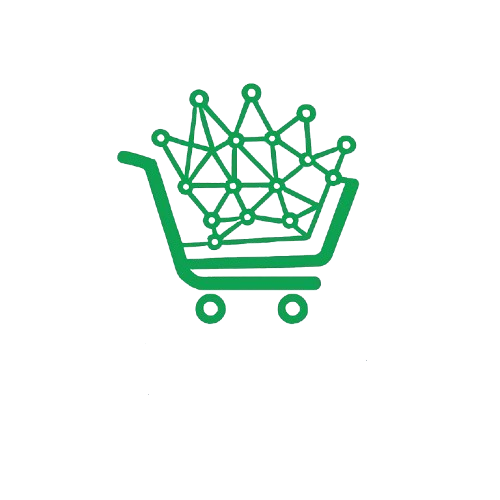

When most people think about investing, they think of stocks and mutual funds. But there’s another massive market that drives the global economy: commodities. Commodities trading includes gold, silver, crude oil, natural gas, agricultural products, and metals. For centuries, commodities have been traded across the world as essential resources, and today, India offers structured, SEBI-regulated exchanges for commodity trading.
This guide will explore what commodities are, why they matter, how to trade them in India, risks, strategies, taxation, and how algo trading platforms like AlgoKart help traders participate efficiently.
Commodities are raw materials or primary goods used in everyday life and industry. They are broadly classified into:
Bullion: Gold, silver, platinum.
Energy: Crude oil, natural gas.
Base Metals: Copper, aluminium, zinc, nickel.
Agricultural: Cotton, wheat, sugar, soybean, spices.
Unlike stocks (ownership in a company), commodities represent physical goods.
Commodities have low correlation with equities, reducing overall portfolio risk.
Prices of gold and oil usually rise during inflationary periods.
Commodities are essential inputs for industries worldwide.
Commodity futures allow trading with margin, amplifying returns (and risks).
Gold prices rose significantly during the 2008 crisis and 2020 pandemic, protecting portfolios when stocks crashed.
India has well-regulated commodity markets:
MCX (Multi Commodity Exchange): Largest commodity exchange, trades gold, silver, crude oil, base metals.
NCDEX (National Commodity & Derivatives Exchange): Focuses on agricultural commodities.
ICEX (Indian Commodity Exchange): Trades diamonds and niche products.
All are regulated by SEBI (since 2015).
With a SEBI-registered broker (like Zerodha, Upstox, Angel One).
Gold, silver, crude oil, copper, wheat, etc.
Spot Market: Immediate delivery (less common for retail).
Futures Contracts: Agreement to buy/sell at a future date.
Options on Commodities: Growing market in India.
Use limit/market orders, with margins decided by the exchange.
Retail traders usually square off; institutions may take physical delivery.
Standardized Contracts: Defined quantity, expiry date, margin.
Leverage: Trade with a fraction of contract value.
Settlement: Cash or physical delivery.
High Liquidity in Gold, Silver, Crude Oil.
1 gold futures contract on MCX = 1 kg gold. Margin ~5–10% of contract value.
Price Volatility: Geopolitical events, weather, demand-supply shocks.
Leverage Risk: High leverage magnifies losses.
Liquidity Risk: Some agri commodities have low volumes.
Global Dependency: International prices directly impact Indian markets.
In 2020, crude oil futures went negative globally due to storage shortages. Indian traders faced huge margin calls.
Ride long-term uptrends (e.g., gold during inflationary cycles).
Trade price corrections when commodities overshoot fair value.
Exploit price differences between spot and futures.
Agricultural commodities (like cotton, wheat) show seasonal price cycles.
Algorithms can:
Detect momentum early in gold and crude.
Hedge portfolios using commodity indices.
Backtest strategies on MCX data.
AlgoKart enables retail traders to design, test, and deploy commodity strategies.
F&O in Commodities: Taxed as business income.
Profits added to income; taxed as per slab.
Turnover Calculation: Based on absolute profit/loss for audit purposes.
GST: May apply for commodity services (brokers, exchanges).
| Feature | Commodities | Equities |
|---|---|---|
| Asset Type | Physical goods | Company shares |
| Volatility | High (geopolitics, weather) | Moderate |
| Holding Period | Short-term (futures) | Long-term (stocks) |
| Leverage | High (5–10x) | Moderate (intraday margin) |
| Regulation | SEBI | SEBI |
During the 2008 financial crisis, gold rose 30% while equities collapsed.
WTI crude went negative. MCX crude hit record lows, teaching traders about leverage risk.
Onion prices in India spiked due to crop failure, showing importance of supply-demand shocks.
Over-Leveraging: Using maximum margin and facing heavy losses.
Ignoring Global Events: Oil prices linked to OPEC decisions.
Poor Risk Management: Not using stop-loss orders.
Speculation without Knowledge: Trading based on tips instead of analysis.
Q: Can beginners trade commodities?
Yes, but start small with liquid contracts like gold and crude.
Q: Is commodity trading riskier than stocks?
Yes, due to high leverage and volatility.
Q: Do I need a separate account for commodities?
Yes, a commodity trading account via a SEBI-registered broker.
Q: Can I trade commodities with algos?
Yes, AlgoKart supports algo strategies for MCX commodities.
Commodities include gold, silver, crude oil, agri products, and metals.
They diversify portfolios and hedge against inflation.
Traded on MCX, NCDEX, and ICEX in India.
Futures contracts offer leverage but also higher risks.
Algo trading enhances discipline and risk management.
Commodities are the backbone of the global economy. Trading them provides diversification, inflation protection, and profit opportunities. But they come with volatility and leverage risk, requiring discipline and strategy.
With AlgoKart, Indian traders can participate in commodities through backtested, rule-based strategies — capturing opportunities in gold, oil, and beyond while managing risk.
👉 Ready to explore commodities? Use AlgoKart’s Backtest Lab and broker integrations to trade smarter today.